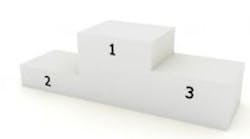February's column (Is Field-Based Control Really All That?) examined the controversial role of function-block-capable field devices and their use in closed-loop process control. For years, Fieldbus fanboys have been proclaiming its virtues, but few concrete studies existed to ascertain whether control-in-the-field (CIF) really delivered any value. That, however, has changed.
Several recent studies have consistently shown that this direction deserves rethinking. What's become increasingly evident is that device-based control exploiting Foundation fieldbus function blocks exceeds DCS-based control, both in reliability and performance.
In one study, three engineers from Emerson Process Management sought to prove once and for all that the millisecond response and cycle time demands of certain licensors could be achieved with fieldbus, whether control was implemented in the field or in the controller. The test lab had a liquid pressure control loop, so response times of sensors, data transmissions, control algorithms and final elements had to be sub-second fast. Two of the crew, Dan Daugherty and Mark Coughran, presented the results in a paper titled, "Effects of Macrocycle Time and Sampling Rates on Control Loop Performance" (http://tinyurl.com/yb2asab), last fall at the Emerson Global Users Exchange. One of the things revealed was that control in DCS did not benefit substantially from over-sampling, which involves running the macrocycle two or more times faster than the DCS PID block. The other notable result was that control-in-DCS could not approach CIF in performance, especially when macrocycles (the deterministic cycle time of all the function blocks on a fieldbus segment) were cranked down to as little as 150 milliseconds. CIF was distinctly better and had no problem matching the performance of fast, pure analog (4-20 mA) control.
Daugherty points out, however, that the majority of control loops will function quite adequately in the DCS despite unknowable and/or variable latencies. One has to understand the real process dynamics the control scheme is supposed to attenuate—the superiority of CIF's relentless determinism will not be noticeable in slow level or temperature loops. In the most demanding applications, CIF may be the only choice that can succeed.
But is the DCS more reliable? To answer that question, we asked IEC 61508 expert Ed Marszal, president of Kenexis Consulting (www.kenexis.com), to employ the reliability models used for safety instrumented systems (SIS) on basic control loops solving PID. Basic process control, after all, has the same components—sensors, logic solvers (controllers) and final elements (control valves). Would the single-loop integrity and intelligent use of diagnostics and signal statuses help CIF surpass control-in-the-controller?
Initially, Ed used reliability numbers for a legacy DCS with no capacity for using device intelligence in real time and generic field devices. "I also used a beta factor for common-cause failures of 2%, which is quite optimistic for a legacy controller, but again it gives the benefit of the doubt to the legacy DCS. Bottom line: Fieldbus is significantly better—mean time to fail (MTTF) of 48.2 [years] versus MTTF of 15.9 [years]."
Fearing that the DCS case was taking too big a hit from its generic field devices, we asked Ed to rerun the calculations, this time using the same field device reliability numbers in both cases. Fieldbus CIF still showed an improvement over the legacy DCS case.
These two studies were carried out independently from similar efforts at ARC and ISC at the University of Strathclyde, which both arrived at the same conclusion (http://tinyurl.com/ybju7jz). The SP50 committee set out years ago to define and specify a robust, vendor-independent controls suite exploiting the intelligence of microprocessor-based field devices that would equal or exceed the "bulletproof" DCSs of the 90s. They succeeded.

Leaders relevant to this article:




